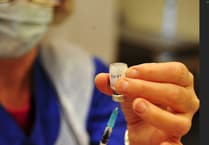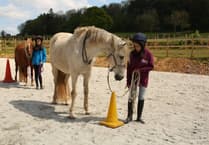Despite Devon’s ageing population, the county has still to create a dementia strategy.
With roughly 16,000 dementia diagnoses in the the county council area – which excludes Torbay and Plymouth – and which is set to rise by just over half to more than 24,000 by 2040, some members of a health committee were concerned that a strategy isn’t in place.
“I’m a fairly new member to this committee, but when I got this report I was amazed that about its sketchy outline and that fact it is only addressing this problem now,” Cllr Yvonne Atkinson (Labour, Alphington and Cowick) told Devon’s adult health scrutiny committee.
“What has taken everyone so long to get here?”
Her Labour colleague Cllr Carol Whitton (St David’s & Haven Banks) agreed it was “slightly concerning” that the authority was only at this stage of creating a dementia strategy.
“Dementia is a looming issue, and as we are aware of the demographic challenges of the county, it is disappointing that it seems the detailed work is only just being done, although we are grateful that it is,” she said.
“It is better late than never.”
Nigel Acheson, Devon’s chief medical officer and who sits on One Devon, the Integrated Care Board which aims to bring organisations together to tackle health issues, said the update on the dementia strategy was a “real example where working together as an integrated care system can play a huge role in improving lives.
“Dementia is a problem that all of us know someone impacted by it, and it is an area where colleagues in the voluntary sector, social care and health care have a role to play,” he said.
“We have set out the fact that there is no comprehensive dementia strategy in Devon, but in our aging population, the proportion of older people is increasing, which is a good thing [as we’re living longer] but we have an opportunity to help older people live well.”
Dr Acheson, who is set to retire soon, said roughly a quarter of acute hospital beds in Devon are taken by people with dementia and that this was “often for conditions that could have been dealt with in their normal place of residence.
“When people are taken out of their normal routine, it can be quite upsetting and difficult, and so we think we have an opportunity to change this,” he added.
Dr Acheson said the strategy would aim to see more timely diagnoses for dementia to help patients and their families better prepare, which included better post-diagnostic care and support for individuals and the person who will care for them, and also work to ensure the local care home market is suitably skilled and qualified to host dementia patients.
The aim is to have the strategy ready to implement by 2025.
Other members of the adult health scrutiny committee raised issues about how the strategy would be completed and who would have ownership of it.
Cllrr Richard Scott (Conservative, Exmouth) said: “My challenge to all involved is how will you break down those that don’t want to take part?
“If there are 10 partners, what will each one commit to, and how do you deal with organisations that are blocking progress or going in different directions; how are we going to ensure that every person who claims to have care of the people of devon will sign up and deliver?”
Dr Acheson added that partnership working had greatly improved in Devon, but that ultimately it was the integrated health board’s responsibility.
“The ICB has been a bit like a toddler, but we’re getting out of that now and learning to walk and talk,” he said.
The strategy should be ready for implementation in April, but the committee requested a further report from officers in November, including and outline of how success will be measured and what the key targets will be.






